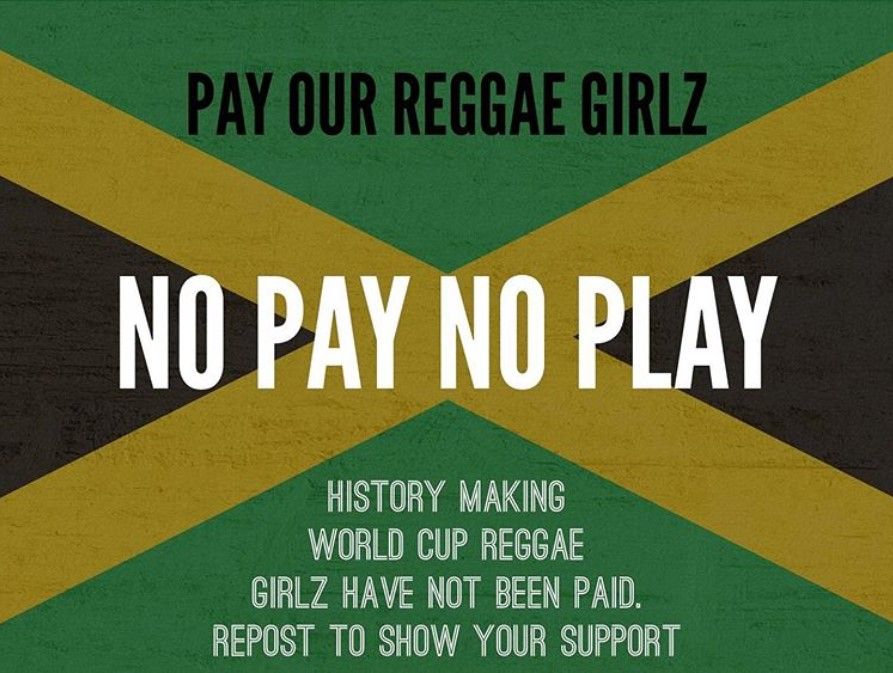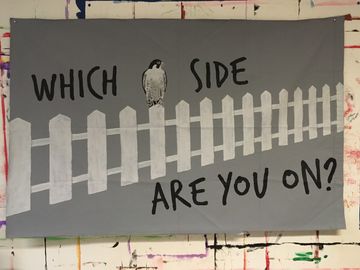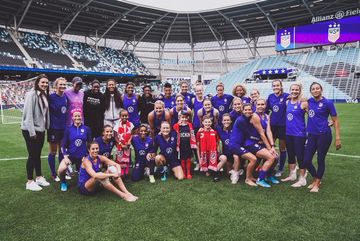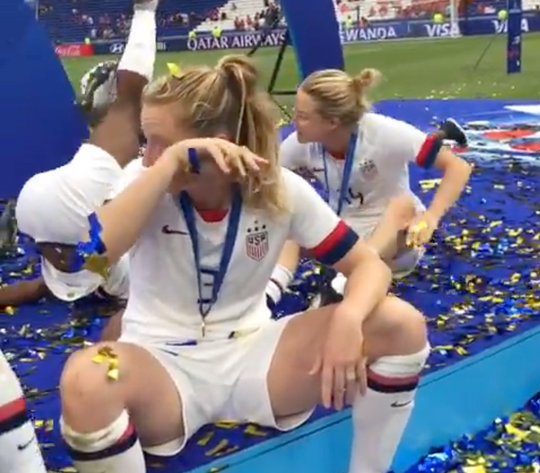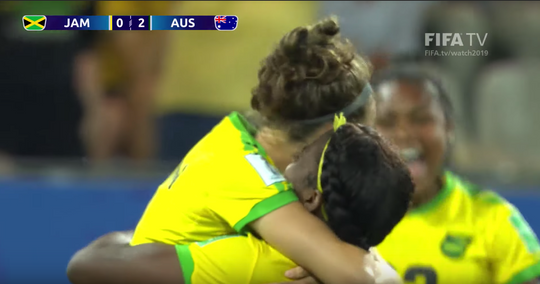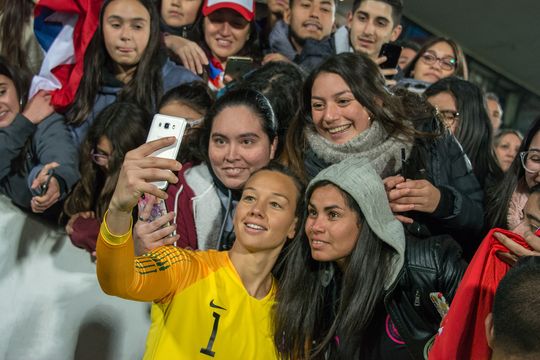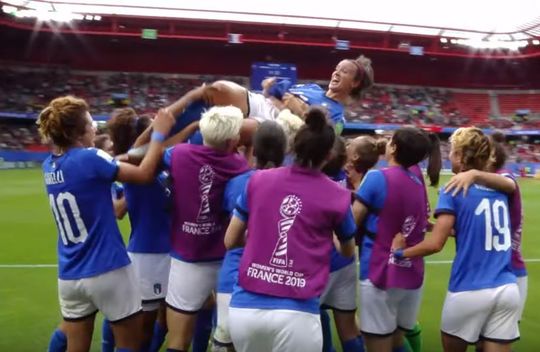The World Cup already feels like eons ago, but we're still buzzing off the many thrilling matches and brilliant moments, many supplied by Jamaica's Reggae Girlz. From Sydney Schneider's masterclass in goal to Bunny Shaw's architectural mastery in attack to Havana Solaun finally breaking through and giving Jamaica its first goal in the tournament.
The Reggae Girlz made history, garnering international attention and admiration on the heels of almost losing their national women's soccer program completely. They impressed in their tournament debut and almost immediately had to turn around and prepare for the Pan-American Games in July and August. Now, the players, including Bunny Shaw, Tiffany Cameron, Allyson Swaby, and Washington Sprit star Cheyna Matthews are sharing on social media that the Jamaican Football Federation has still not paid them what they were contractually owed, and players are planning to sit out of training and international matches until this is remediated.
"This ain't just about money, it's about change, change in the way women football is viewed especially in Jamaica," Shaw wrote in an Instagram post on September 2nd. "We deserve more and they can do better. For this reason, I along with my teammates won't be participating in any future tournaments until being paid."
This failure is not just at the hand of the Jamaican Football Federation; FIFA shares the blame as well. If FIFA claims to be giving resources and working to lift up smaller federations, how are they working to hold those federations accountable if the athletes aren't getting paid? Our expectations for FIFA are already subterranean, but as Grant Wahl pointed out, FIFA committed $1 billion for growing the women's game globally, and there are huge problems that need to be addressed if the teams and athletes that were promised that money are not seeing it.
A number of women's soccer stars, including Sam Mewis, Samantha Kerr, Megan Rapinoe, and Yael Averbuch have posted the Reggae Girlz' message in solidarity at time of writing, and hopefully many more will join them. And solidarity from the USWNT given their own very loud and public fight for pay equity, complete with thousands of fans holding "EQUAL PAY" signs and heckling U.S. Soccer President Carlos Cordeiro, is important. Last month, the USWNT announced a partnership with Time's Up, working to generate funds and awareness to fight for pay equity for working women in all professions, as well as educate themselves on policy. As Time's Up's Jen Klein put it in the Washington Post, "They're not willing to wait any longer."
It's laudable that members of the USWNT are taking the time to learn about workplace inequities to be better advocates beyond the soccer-ing world. This is also a moment, when they have the platform and momentum, where they (and their fans) can show up for their fellow footballers and help spread the Reggae Girlz' message.
Of course, no other team or entity needs to (and shouldn't!) speak over or for the Jamaica WNT. Someone as smart and passionate and as natural of a leader as Bunny Shaw doesn't need anyone to speak for her. But all players and fans of this sport, regardless of where they are from and whether they primarily watch men's or women's soccer, should take this moment as an urgent reminder that the fight for equity in soccer and beyond is a worldwide one, from Nigeria's Super Falcons holding a sit-in in their hotel room to Norway's Ada Hegerberg demanding better from her national federation; from the Matildas' high-profile players' strike in 2015 to the Reggae Girlz' strike today. The USWNT's equal pay fight is absolutely important, but if that's the only one you're paying attention to, you're missing the bigger picture.
We should listen to female footballers and use whatever tools we can to show solidarity and amplify their fight for equity, whether they play for our home side or not. We owe it to them and we owe it to the sport if we want to see the women's game grow to be healthy, fair, and sustainable around the world. And the louder the players and supporters are, the stronger the displays of solidarity, the sooner the JFF and FIFA listen. And the sooner we get back to watching the Reggae Girlz thrill the crowd playing the game they love.
